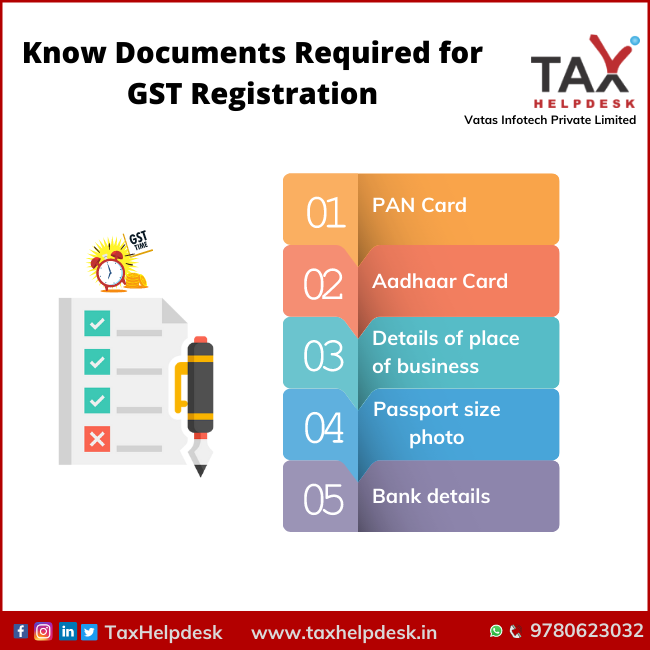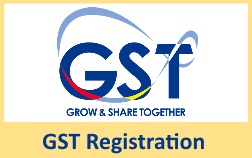From Beginning To End: The Ultimate Roadmap to GST Registration for Businesses Looking For Financial Security
Navigating the complexities of Product and Solutions Tax Obligation (GST) enrollment is an essential action for businesses pursuing monetary security. From understanding the essential concepts of GST to abiding by post-registration standards, the process can seem intimidating in the beginning glance. However, damaging down the roadmap right into workable actions can simplify the registration journey for companies aiming to boost their economic standing. Allow's check out the important components that make up this utmost roadmap and find just how each phase adds to laying a strong structure for financial success.
Understanding GST Essentials
Looking into the basic concepts of Product and Services Tax Obligation (GST) is necessary for acquiring a thorough understanding of its effects on businesses and the economic situation. GST is a value-added tax levied on most goods and services for domestic usage. It has replaced several indirect taxes that existed in the pre-GST age, enhancing the tax obligation structure and boosting simplicity of doing business in India. Under the GST system, both solutions and goods are tired at a particular price, which is identified based on their classification. Companies are needed to sign up for GST if their annual turnover surpasses the threshold limit established by the federal government. Input Tax Credit Rating (ITC) is a considerable function of GST, enabling businesses to claim credit for tax obligations paid on inputs, minimizing the overall tax concern. Recognizing the essentials of GST is crucial for organizations to abide with tax regulations, manage their funds successfully, and contribute to the country's economic development by getting involved in a clear tax system.
Qualification Criteria for Registration
To register for GST, organizations should satisfy details eligibility standards established by the federal government. The key eligibility demand is that any type of company involved in the supply of goods or solutions with a yearly accumulation turnover above the threshold limit set by the authorities should register for GST. As of the current regulations, the threshold restriction for GST registration is an annual aggregate turnover of 40 lakhs for organizations operating within a state, besides special classification states where the limit is 20 lakhs. Additionally, specific services are called for to sign up for GST regardless of their turn over, such as interstate providers, laid-back taxed individuals, and services reliant pay tax under the reverse fee device. It is important for services to thoroughly evaluate their turnover and purchase types to determine their GST enrollment commitments properly. Failure to register for GST when eligible can lead to fines and legal effects, making it important for companies to stick to the specified qualification standards.
Records Required for Enrollment
Having satisfied the eligibility requirements for GST enrollment, businesses need to currently guarantee they have the requisite documents in area to proceed with the registration process efficiently. The files link required for GST enrollment usually include evidence of service constitution, such as collaboration action, registration certification, or unification certificate for different types of businesses. In addition, services require to offer papers establishing the major location of company, such as a rental arrangement or electrical energy expense.
Step-by-Step Registration Process
Beginning the GST enrollment procedure includes a collection of structured actions to guarantee a compliant and seamless enrollment for businesses. The very first step is to check out the GST site and fill in the her explanation enrollment form with exact details of the company entity. Following this, the candidate receives a Momentary Recommendation Number (TRN) which is made use of to resume the application procedure if it's not completed in one go.
Next, all required records as per the checklist provided by the GST portal demand to be submitted. These documents typically consist of proof of business registration, identification and address proofs of marketers, economic declarations, and business entity's frying pan card.

Post-Registration Compliance Guidelines

Verdict
To conclude, organizations looking for monetary stability needs to comprehend the read the full info here fundamentals of GST, meet eligibility requirements, gather needed papers, adhere to the step-by-step enrollment procedure, and abide by post-registration guidelines - Best GST registration services in Singapore. By sticking to these steps, businesses can guarantee compliance with tax obligation laws and keep monetary stability in the future
Furthermore, specific organizations are required to sign up for GST irrespective of their turn over, such as interstate distributors, laid-back taxed persons, and services liable to pay tax obligation under the reverse fee mechanism.Having actually satisfied the eligibility requirements for GST registration, services must currently guarantee they have the requisite records in area to proceed with the registration process successfully. The documents needed for GST enrollment typically consist of evidence of business constitution, such as partnership deed, registration certification, or unification certification for various types of companies. In addition, organizations require to supply files developing the primary area of service, such as a rental arrangement or electrical energy bill.Commencing the GST enrollment process entails a collection of organized steps to guarantee a compliant and seamless enrollment for services.